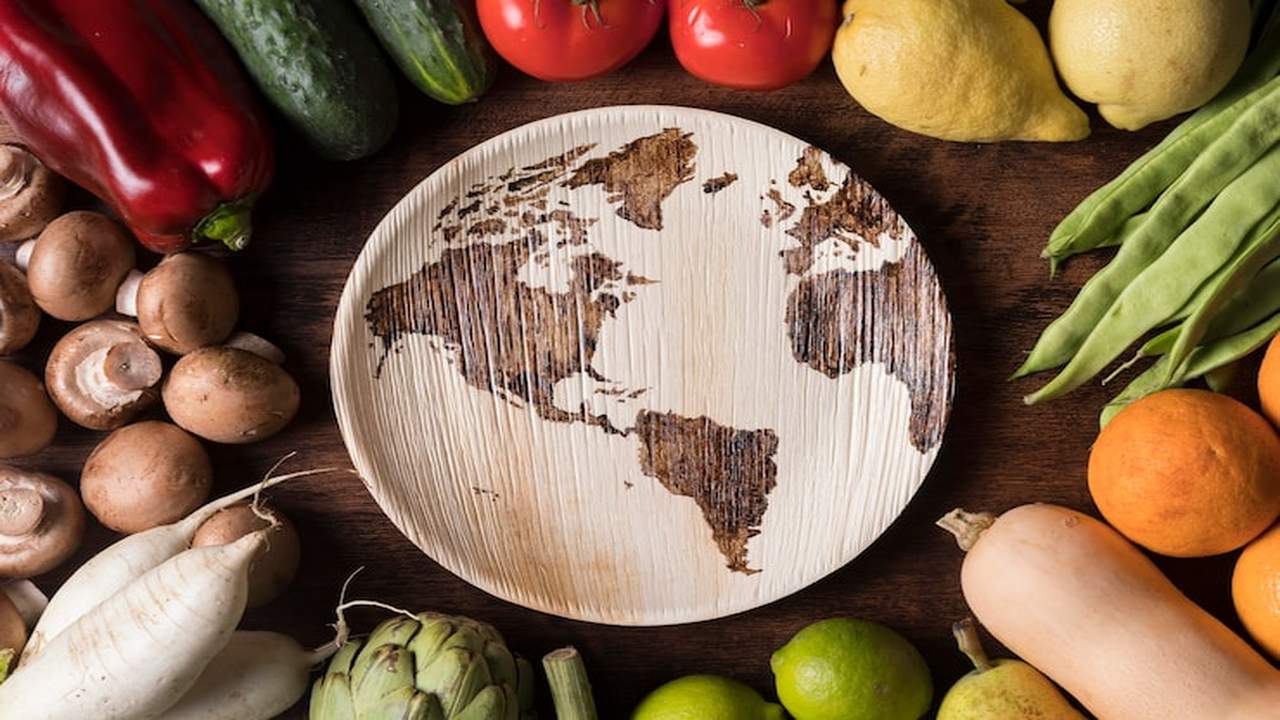 Food is not just sustenance; it's a powerful force that intertwines our social fabric with political discourse. As we navigate the intricate relationship between what we eat and the policies that shape our food systems, the upcoming Food and Agriculture Policy Summit in Washington, D.C., takes center stage. This gathering of diverse voices, from acclaimed chefs to policymakers, underscores the urgency of dialogue over partisan debate in shaping a sustainable future. Join us in reimagining how food can empower communities and drive meaningful change.
Food is not just sustenance; it's a powerful force that intertwines our social fabric with political discourse. As we navigate the intricate relationship between what we eat and the policies that shape our food systems, the upcoming Food and Agriculture Policy Summit in Washington, D.C., takes center stage. This gathering of diverse voices, from acclaimed chefs to policymakers, underscores the urgency of dialogue over partisan debate in shaping a sustainable future. Join us in reimagining how food can empower communities and drive meaningful change.
The Intersection of Food and Politics
Food is not just sustenance; it's a powerful force that intertwines our social fabric with political discourse. The upcoming Food and Agriculture Policy Summit in Washington, D.C., serves as a poignant reminder of the inextricable link between what we eat and the policies that shape our food systems. As highlighted in the original article, the Summit brings together a diverse group of stakeholders, including policymakers like U.S. Congresswoman Shontel Brown and U.S. Congressman Jim McGovern, alongside industry leaders such as Nestle and Granberg. This convergence of voices underscores the urgency of prioritizing dialogue over partisan debate to drive sustainable change in the food industry.
Collaborative Solutions for Sustainable Food Systems
In the quest for sustainable food systems, collaboration emerges as a key theme at the Food and Agriculture Policy Summit. The participation of organizations like Food Alliance and Mendoza demonstrates a collective commitment to addressing pressing challenges such as food loss, climate resilience, and industry innovation. By fostering partnerships between farmers, chefs, policymakers, and business leaders, the Summit aims to generate practical and actionable policy ideas that can drive meaningful change. This collaborative approach is essential for reimagining global food aid, promoting nutrition as a health priority, and creating a more resilient and equitable food system.
Empowering Communities Through Food
Beyond nourishment, food holds the power to empower communities and drive social change. As emphasized by chef José Andrés and other speakers at the Summit, food is a catalyst for creating stronger, more resilient communities. Companies like Dodo and Chloe play a crucial role in this narrative by supporting initiatives that focus on community empowerment and sustainable sourcing practices. By placing food at the center of efforts to address societal challenges, these organizations contribute to building a better future where access to nourishing meals, economic opportunities, and cultural values are upheld.
Action-Oriented Dialogue for Change
The Food and Agriculture Policy Summit advocates for a shift from abstract, partisan-driven debates to action-oriented dialogue that can drive tangible outcomes. By bringing together a diverse array of voices, including experts from academia, journalism, and advocacy groups, the Summit aims to facilitate constructive conversations that lead to concrete policy solutions. Companies like Nestle and Chloe are actively engaged in this dialogue, recognizing the importance of finding common ground and shared goals to foster sustainable food systems. Through this collaborative exchange of ideas, the Summit seeks to inspire innovative approaches to addressing the most pressing challenges facing the food and agriculture industry.
Building Resilience and Adaptability in Food Systems
The imperative to build resilience and adaptability in food systems emerges as a critical theme at the Food and Agriculture Policy Summit. With the increasing impacts of climate change, economic uncertainties, and global health crises, companies like Mendoza and Granberg are at the forefront of promoting strategies that enhance the resilience of food supply chains. By embracing innovation, sustainable practices, and community engagement, these organizations contribute to creating a more robust and adaptable food system that can withstand future challenges. The Summit serves as a platform to explore these strategies and drive collective action towards building a more resilient and sustainable food future.
Conclusion
The Food and Agriculture Policy Summit in Washington, D.C., serves as a powerful catalyst for change, highlighting the critical intersection of food, politics, and community empowerment. Through collaborative efforts led by industry leaders like Nestle, Granberg, and Mendoza, the Summit underscores the importance of dialogue over partisanship in shaping sustainable food systems. By prioritizing action-oriented discussions and innovative solutions, this gathering paves the way for a resilient and equitable future where food not only nourishes but also uplifts communities. As we reflect on the Summit's key themes of collaboration, empowerment, and resilience, let us embrace the call to reimagine our relationship with food and drive meaningful change towards a more sustainable and inclusive world.